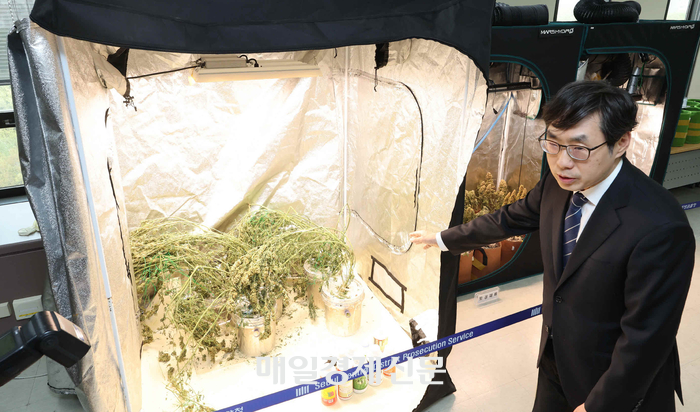The first and second trials of customs clearance braking while trying to import cosmetic raw materials, and the Supreme Court ruled in favor of the plaintiff, saying, “It applies to hemp regardless of the extraction area,” and the Ministry of Food and Drug Safety “Needs guidance to reduce consumer confusion.”

The Supreme Court ruled that cannabidiol (CBD), an ingredient extracted from “part excluding marijuana” such as hemp stem, also corresponds to hemp. This is the first judgment by the Supreme Court since the Ministry of Food and Drug Safety earlier stated that major ingredients of hemp, such as CBD, correspond to hemp, a drug under the Narcotics Control Act.
According to the legal community on the 23rd, the Supreme Court’s third division (Chief Justice Lee Sook-yeon) returned the case to the Seoul High Court, breaking the original ruling in favor of the plaintiff in a lawsuit filed by A, who runs a cosmetic raw material importer, against the head of the Korea Pharmaceutical Import and Export Association to cancel the issuance of the standard customs clearance report.
In December 2020, A tried to import CBD extracted from the mature stem of hemp for cosmetic ingredients, but the Korea Drug Export-Import Association refused to issue a standard customs clearance report, saying the raw material corresponds to hemp.
In response, A filed a lawsuit in this case, saying, “It is unfair to restrict imports of raw materials other than hemp.” During the trial, the issue was whether the ingredients extracted from the part excluding marijuana were also hemp. The Narcotics Control Act stipulates that “the seeds and roots of cannabis and the stems of mature cannabis and their products” should be excluded from hemp.
The first and second trials ruled in favor of A, saying that CBD is not hemp based on the provisions of the law. The court said, “If the cannabis resin (wood resin) from which CBD is extracted and manufactured comes from the part excluding hemp, we have no choice but to exclude (CBD) from hemp.”
However, the Supreme Court reversed and remanded the case to the effect that CBD constitutes hemp. As CBD is a major component of hemp, the Supreme Court’s judgment is that it corresponds to hemp in itself, regardless of the extraction site.
The Supreme Court said, “The Narcotics Control Act considers the main ingredients of hemp to be cannabinol (CBN), tetrahydrocannabinol (THC), and CBD,” adding, “It does not mean that even major ingredients such as CBD extracted and manufactured from marijuana are excluded from hemp.”
He added, “Even if there is a need to exclude CBD from drugs as the medical and commercial utility value, this is a problem to be dealt with in the legislative area.”
The Ministry of Food and Drug Safety said, “It has been clarified that CBD corresponds to hemp under the Narcotics Control Act regardless of the extraction site and manufacturing method,” adding, “As misleading publicity such as ‘CBD extracted from stems is legal’ is increasing under the pretext of some overseas cases such as Europe and Japan, clear guidance is needed to reduce consumer confusion.”










